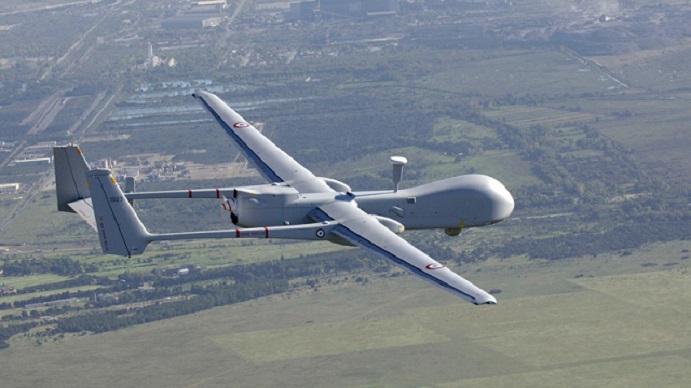
Tamara Nassar
The Electronic Intifada / July 22, 2020
A United Arab Emirates company reached an agreement with two of the biggest Israeli arms firms supposedly to cooperate on research to counter the coronavirus pandemic.
Abu Dhabi-based artificial intelligence company Group 42 announced it has signed two agreements with state-owned weapons manufacturers Israel Aerospace Industries and Rafael Advanced Defense Systems.
The spokesperson of Israel’s foreign ministry Lior Haiat applauded the effort.
The deal between Group 42 and the Israeli firms was announced by Prime Minister Benjamin Netanyahu and Emirati officials in June, but the companies were not named at that time.
Details of the collaboration remain vague.
“We are privileged to follow the lead and share our resources and expertise with Rafael and IAI for such a significant cause,” Peng Xiao, CEO of Group 42, stated.
Both Israeli firms are leading suppliers of weapons used in Israel’s attacks on Palestinians.
This includes Israel’s major offensive against Gaza in the summer of 2014, a subject of the International Criminal Court’s impending investigation into war crimes in the West Bank and Gaza Strip.
It is unclear how two weapons manufacturers implicated in war crimes could help fight the pandemic.
The links between the Emirati firm and the country’s cybersecurity industry paint a curious picture.
Linked to shady spy firm
According to by Bill Marczak, a senior researcher at the Canadian cybersecurity organization Citizen Lab, Group 42 is linked to DarkMatter Group, a cybersecurity company with close ties to the Emirati government.
DarkMatter recruits veterans of Unit 8200, a high-tech spy branch of the Israeli military, seen as the Israeli equivalent of the US National Security Agency.
DarkMatter has also previously employed former US intelligence personnel.
Xiao, the current CEO of Group 42, was previously the CEO of Pegasus LLC, a former subsidiary of DarkMatter.
Pegasus LLC has been renamed to PAX AI and is now a division of Group 42.
The groups are linked to Tahnoun bin Mohammed al-Nahyan, the current National Security Adviser of the UAE and the son of the country’s founder, according to Marczak’s findings.
Notably, DarkMatter recruited developers from Israeli spy firm NSO Group, luring them with big paychecks.
The UAE used malware produced by NSO Group in attempts to spy on Qatari and Saudi leaders in the past.
Surveillance scandal
The investigation by Marczak found that Group 42 was involved in creating the messaging app ToTok.
Google and Apple removed ToTok from their stores last December amid concerns that the app’s users were vulnerable to monitoring of their messages and conversations by the UAE government.
ToTok was popular in the Emirates because it served as a free alternative to global messaging apps FaceTime, WhatsApp and Skype, which are restricted by the government and do not allow calls.
No repercussions for annexation
The initial announcement of the Group 42 deal with the Israeli arms firms came just two weeks after the Emirati ambassador to Washington Yousef al-Otaiba warned that Israeli annexation of West Bank land would set back the normalization of ties.
But that “warning” came laced with enticements and offers to Israel of further normalization.
Informal relations between Israel and the UAE date back to the 1990s and include military and intelligence cooperation.
Covert ties have been coming into the limelight in recent years.
The UAE was set to host an Israeli delegation at its Expo 2020 event this year, but that has been postponed due to the pandemic. DarkMatter is supposed to oversee cybersecurity at the event.
Despite seemingly critical protests from friendly regional governments against Israel’s annexation plans, so far Israel has seen no repercussions.
Saudi scholar publishes in Israeli journal
Meanwhile, a Saudi scholar published a paper in Kesher, a journal of the Shalom Rosenfeld Institute for Research of Jewish Media and Communication, at Tel Aviv University.
Mohammed Ibrahim Alghbban, head of Near Eastern Languages and Civilizations and Hebrew Studies at King Saud University in Riyadh, published the article in Hebrew.
Tel Aviv University lauded this new sign of normalization between the two countries as “a historic moment for Israeli-Saudi relations.”
Tamara Nassar is an assistant editor at The Electronic Intifada





![vrijdag 17 mei in Amsterdam: in gesprek [videoverbinding] met Palestijnse arts Ghassan Abu-Sittah](https://palestina-komitee.nl/wp-content/uploads/2024/04/abu-Sittha-1-1-218x150.png)






